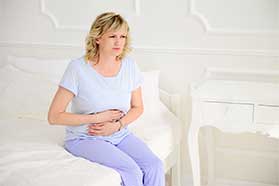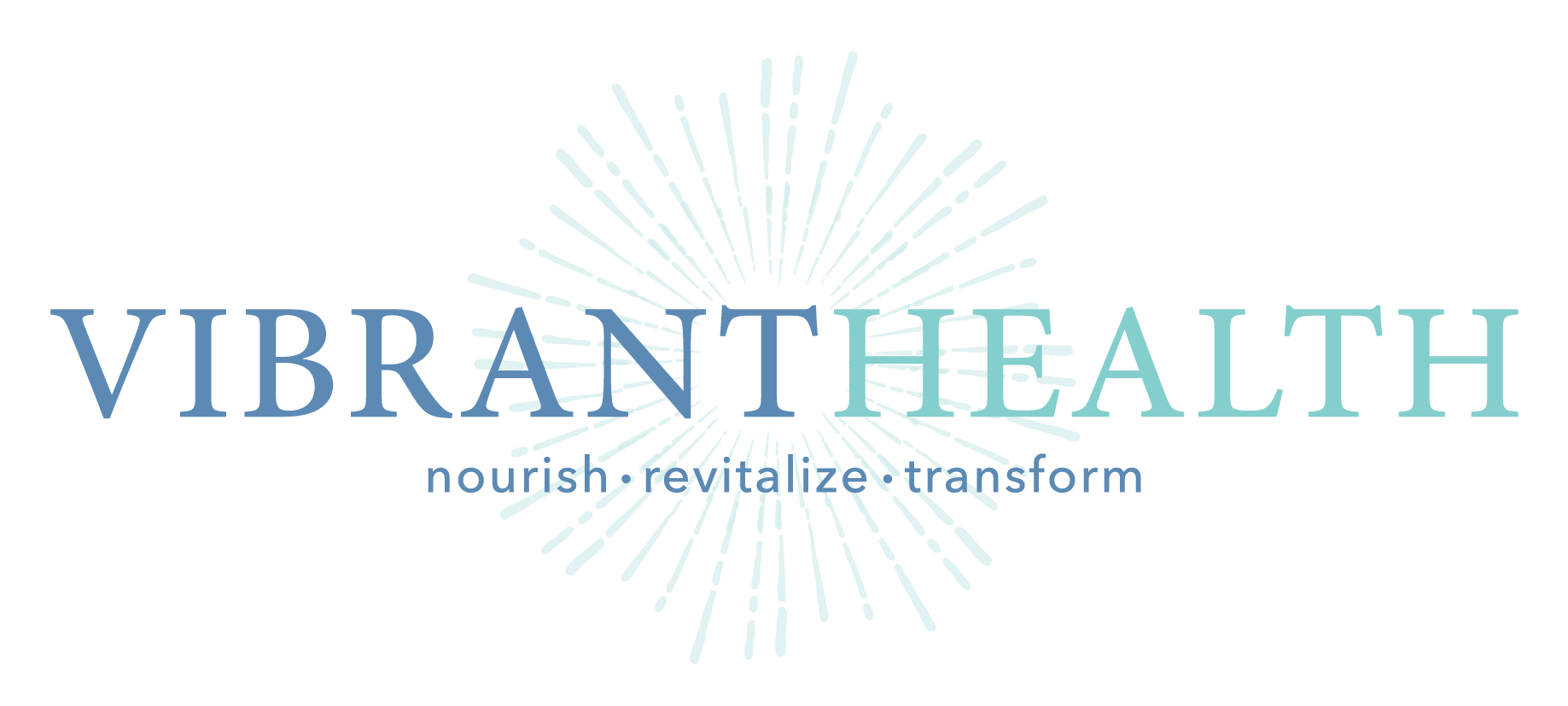Bloating Treatment Newburyport, MA

Many of us have felt the unfortunate effects of bloating, the embarrassing gassiness and abdominal discomfort we associate with eating too heavily. But what causes bloating, and what can you do to avoid it?
A common cause of bloating, especially bloating that occurs after eating, is excess gas and air buildup in the digestive tract which interrupts the digestive process. This can happen when you eat too fast or swallow too much air, such as when chewing gum rapidly or drinking from a straw. Bloating can also be a byproduct of a number of underlying medical conditions such as irritable bowel syndrome (IBS) or other gastrointestinal disorder.
Unfortunately, there's no one simple answer to why we become bloated. The number of factors that can contribute to bloating are many; however, understanding these various factors can help you take control of your digestive health and reclaim your quality of life.
To schedule a consultation with a qualified healthcare provider in Newburyport that specializes in bloating treatment, call (207) 536-9661 or contact Dr. Nicole Schertell online.
What is Bloating?
So what is bloating anyway? Bloating refers to abnormal swelling (or an increase in diameter) of the abdominal area. Bloating causes pain, excessive gas (flatulence), frequent burping or belching as well as abdominal rumbling or gurgles, and its undisputed cause is often hard to pinpoint.
What we know and associate bloating with is problems with digestion, which doesn't clear things up when we consider the multiplicity of things that can affect gut health. However, the more you learn about digestive health , the more you'll be able to stop bloating in its tracks.
How to Get Rid of Bloating
When bloating occurs, discomfort can quickly set in. If you experience frequent bloating, there are remedies to help relieve your gastrointestinal discomfort and to prevent bloating from ever occurring. Get started with these tips!
Eat Smart.
Approaching the task of eating with care is key for fighting bloat. First thing's first: slow down. You should never eat in a hurry, as it causes you to swallow more gas-producing air. Chew all your food well, with your mouth closed, and sip straight from a cup instead of from a straw.
Now, what you eat is just as important as how you eat it. Cutting back on processed foods and replacing them with low-sodium, or sodium-free fresh fruits, grains and vegetables can help tremendously to improve your body's digestive process. Fruits like watermelon and cantaloupe, which are high in water content and low in calories, contain key electrolytes and enzymes which aid in relieving bloating naturally. Vegetables like cucumbers and celery pack similar benefits.
Supplement Your Digestive System's Enzymes.
Your body relies on certain enzymes to aid in the digestive process. When you have insufficient digestive enzymes, bloating may ensue, but many supplements exist to aid in the digestive process. Some of these include:
- Digestive enzymes to help the body break down food in order to properly absorb its nutrients
- Peppermint, a known anti-bacterial which increases gastric juices and relieves gas, nausea, vomiting and morning sickness
- Probiotics , which can help increase your body’s level of “good bacteria” to stimulate its ability to kill off bad bacteria and achieve optimal digestive function
- Betaine, which helps supplement your body’s stomach acid to help digest food and absorb nutrients
- Pepsin, which assists in the breakdown of protein and stimulates the release of other enzymes that support digestion and absorption of carbohydrates, fats and vitamins A and E
Increase Fluid Intake.
Drinking 8 cups of liquid a day can help to naturally drain toxins out of your vital organs, restore sodium balance in the digestive tract and carry nutrients throughout your body. Our bodies, after all, are comprised of 60% water content.
What you drink is key. Soda and carbonated beverages—including beer, champagne, tonic water or anything with added carbonation—come with air bubbles that travel to the stomach, releasing carbon dioxide in the digestive tract which can create an uncomfortable bloating sensation. Ditching the soda for water can naturally increase your body's hydration to prevent dehydration and aid in its optimal functioning—adding a lemon can aid in digestion and detoxification due the atomic structure of the lemon which is similar to the digestive juices naturally found in the stomach, which tricks the liver into producing bile to help move food through your gastrointestinal tract more smoothly, and to help relieve indigestion and ease your upset stomach.
Address Problem Hormones.
Colloquially known as PMS (premenstrual syndrome), bloating is often an unfortunate byproduct of the menstrual cycle. Known as the "luteal phase," a period of time that occurs right after ovulation and lasts for about two weeks, as the uterine lining prepares for a possible pregnancy, estrogen levels plummet and then begin to steadily increase, while progesterone levels increase. These changing hormone levels can lead to bloating and water retention. A lack of stomach acid, too, can unbalance your body's hormonal levels and cause unwanted bloating.
When hormonal imbalance is the culprit of your bloating, lifestyle changes such as diet and exercise can help naturally stimulate your body's hormone production. This includes eating foods high in short, medium and long-chain fatty acids (such as coconut oil, avocados, grass-fed butter and wild-caught salmon) to help lower inflammation, boost your metabolism and promote weight loss. When diet and exercise are not enough, bioidentical hormone replacement therapy is a treatment your healthcare provider may recommend in which hormones identical to the naturally-occurring hormones in your body are used to replenish hormone deficiencies.
De-Stress.
Stress presents considerable psychological perils that can begin to take a physical toll and affect the usual digestive process. Stomach acid, enzymes and other digestive "juices" are not adequately released when the body is under stress, leading to poor digestion. Additionally, when we're stressed, our nervous habits are intensified—chewing gum, wolfing down carbonated beverages or even gulping can increase the amount of air in your stomach and contribute to bloating. Whatever helps you de-stress—be it a walk in the park, a relaxing massage, an acupuncture session, a tranquil yoga session or even just serene silence—be sure to employ these natural stress-relievers to help your digestion.
End Your Bloating Today
Abdominal bloating should not become a part of your every day. It is always important to meet with a healthcare provider, who can uncover the root of your bloating and suggest treatments that address the underlying cause of your gastrointestinal upset. Schedule a consultation with a qualified healthcare provider in Newburyport that specializes in bloating treatment. Call (207) 536-9661 or contact Dr. Nicole Schertell online.
Vibrant Health Naturopathic Medical Center
Address
3 Riverside DriveGreenland, NH 03840
(207) 536-9661
www.vibranthealthnaturalmedicine.com
Hours
Mon:
8:30 am - 5:00 pm
Tue:
9:00 am - 5:00 pm
Wed:
10:30 am - 5:00 pm
Thu:
9:00 am - 5:00 pm
Fri:
10:00 am - 4:00 pm
Sat:
Closed
Sun:
Closed


